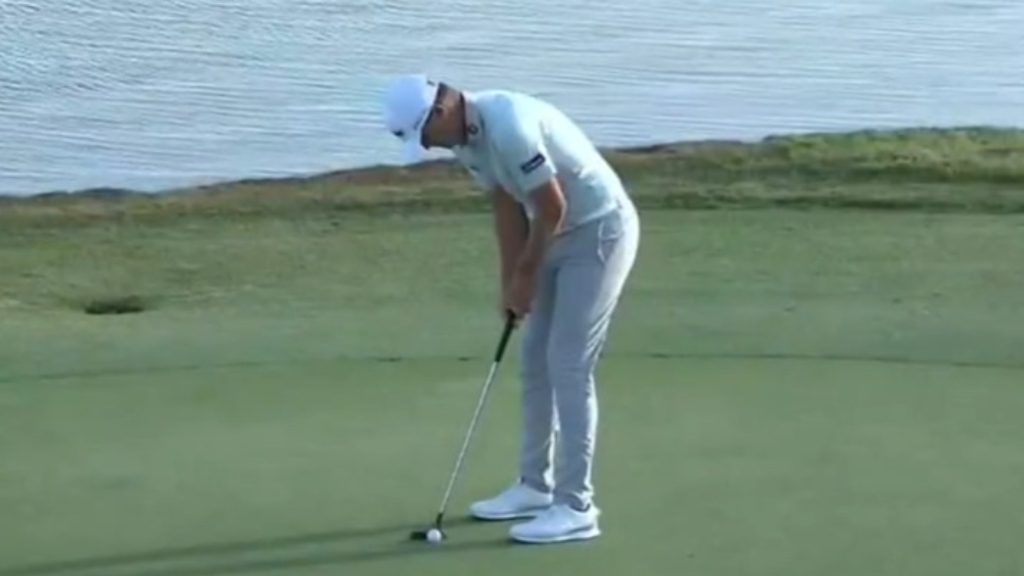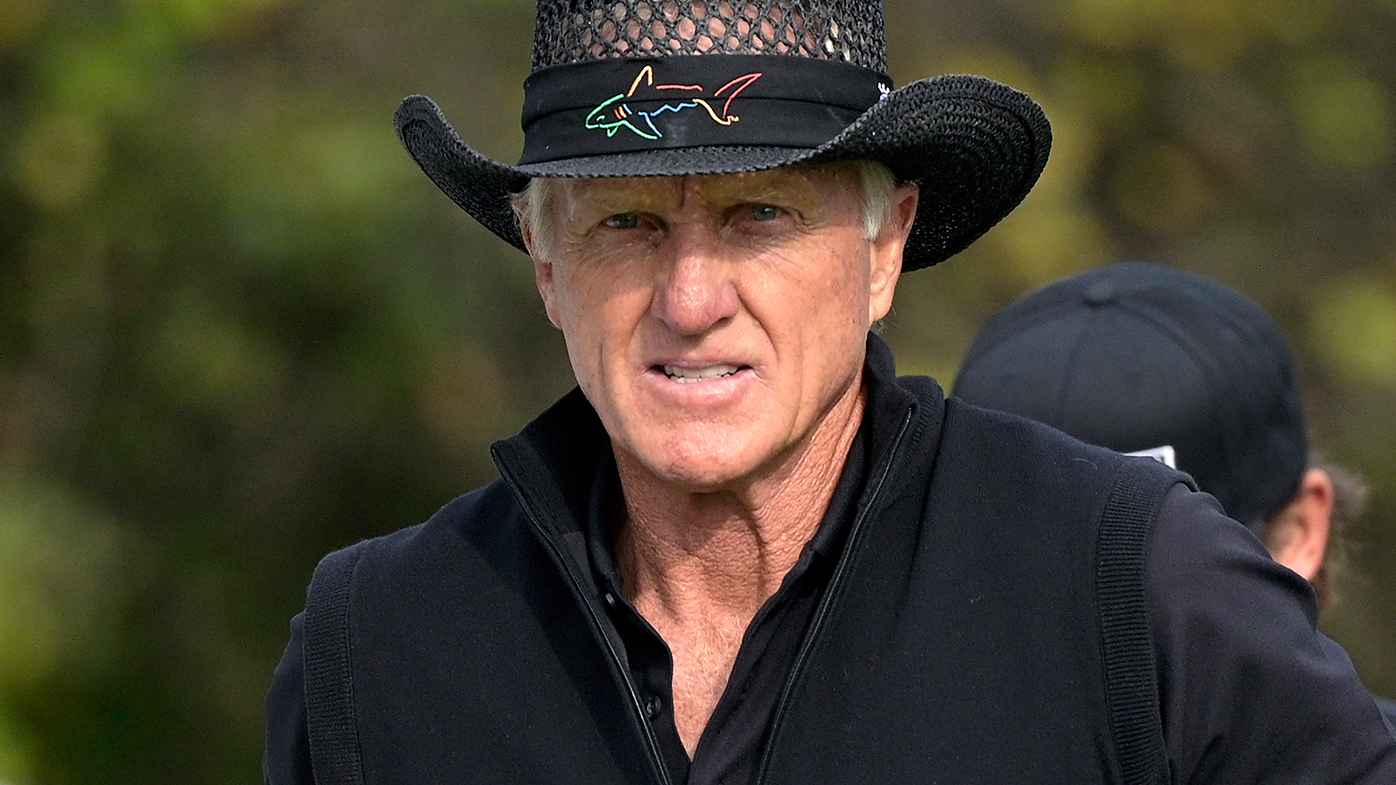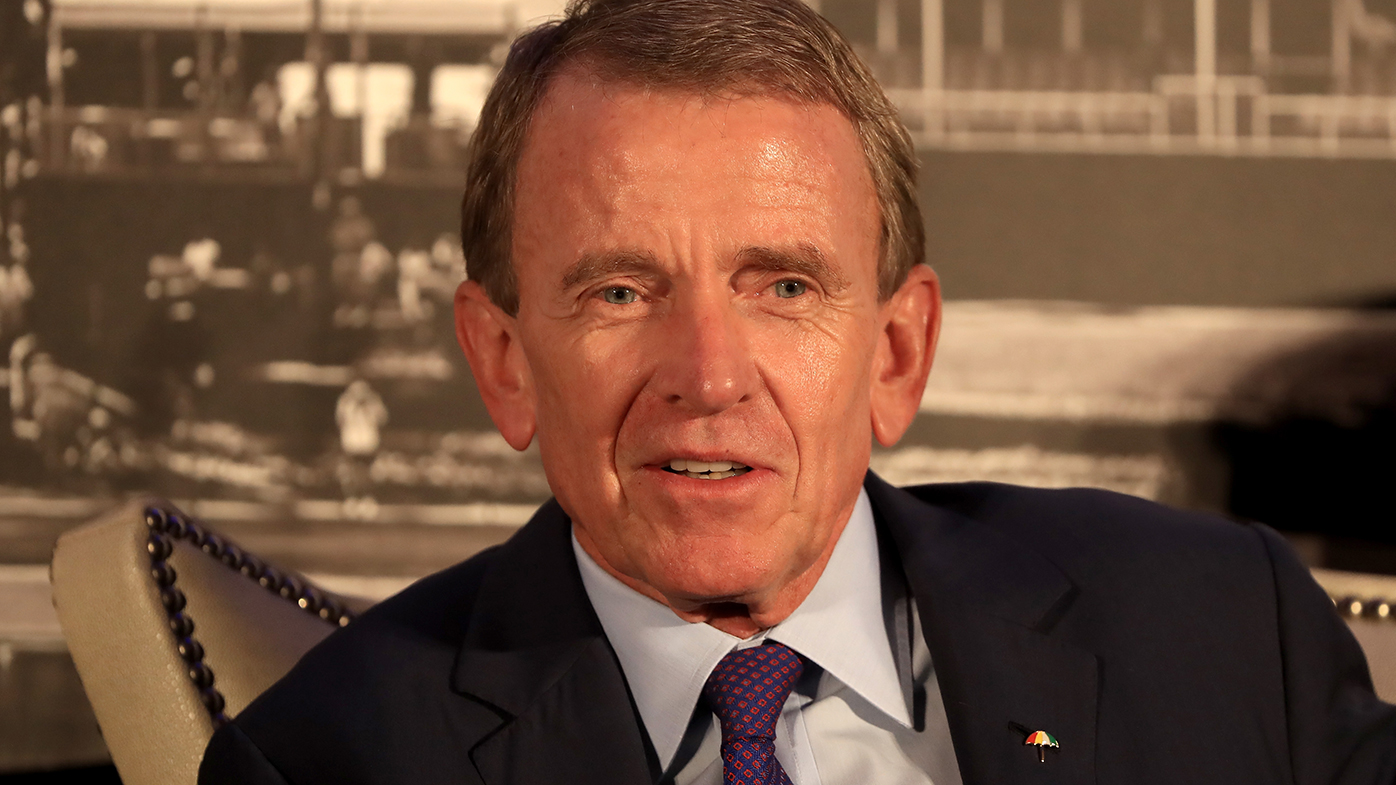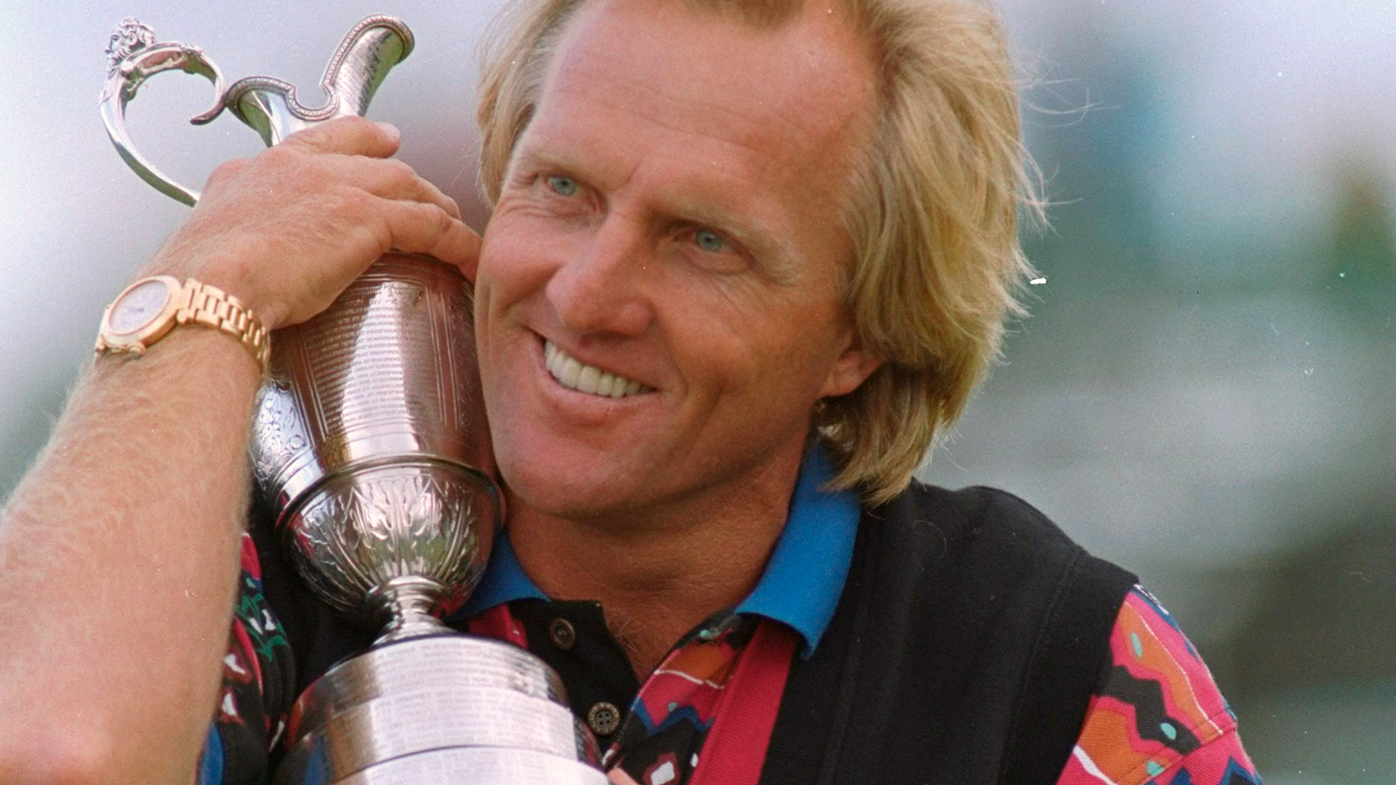Greg Norman is undoubtedly being paid an obscene amount of money as the figurehead of LIV Golf, but the biggest motivation for the 67-year-old in his ongoing battle with the established tours may be a three-decades old snub.
The two-time major champion insists he doesn’t hold grudges, but the rejection of his 1994 proposal for a World Tour undoubtedly left the Shark at odds with the all-powerful PGA Tour.
Norman, at the time one of the game’s leading players, wanted to set up a series of rich, limited-field tournaments that would complement the existing tours. Sound familiar?
READ MORE: Origin player ratings: Stunning ‘captain’s knock’ wasted
READ MORE: What hurt Joey most about latest NSW Origin loss
READ MORE: F1 star calls for bone-breaker to be abandoned
The Australian felt that golf needed more of a world presence, certainly more than that offered by the American-based PGA Tour. At the time, the top five players in the world (Nick Price, Norman, Nick Faldo, Bernhard Langer and Jose Maria Olazabal) were all born outside the United States.
But the PGA Tour, then headed by Tim Finchem, reacted to the threat by sending a memo to its players warning that anyone who took part in a World Tour event would be suspended.
It’s a remarkable parallel with what’s played out in the current dispute between golf’s establishment and Norman’s LIV Golf.
Writing in his 2006 book, The Way of the Shark, Norman detailed his disillusionment with the way it played out.
“The more I thought about it, the more dejected I became,” he wrote.
“PGA Tour executives had reacted emotionally and defensively to our idea for the World Tour. They didn’t perform their due diligence and moved too quickly – which is why incorrect statements were made.
“It became clear to me that Finchem really didn’t want to work anything out with us.
“It was also pretty clear to me that he was subtly accusing those of us associated with the World Tour of trying to enrich ourselves individually rather than doing what was best for golf.”
The International Federation of PGA Tours reacted to the threat of a breakaway series by creating the World Golf Championships events in 1999, a series of tournaments designed to bring the world’s best players together outside of the four major championships held each year.
Originally meant to be played all around the world, the overwhelming majority of WGC events have found a home in the United States, making them little more than an extension of the PGA Tour.
“I don’t believe this series has improved the internationalisation of the game, and I would suspect that if the opinion of the original members of the International Federation of PGA Tours was sought, they wouldn’t see any parity in the game today,” Norman wrote.
“In fact, most of the other tours are ailing by comparison to the PGA Tour.
“I do not believe the PGA Tour has done much to create unity among the various tours.
“I don’t believe the Tour ever had a genuine interest in developing such a series.”
Norman at one stage received a souvenir of the WGC, at which point his true feelings were revealed.
“It was a little squishy ball with a map of the world on it, inscribed: World Golf Championships,” he wrote.
“I stood up, threw that little squishy ball against the wall as hard as I could, and shouted: ‘F–k em’.”
There’s little doubt that the PGA Tour has done irreparable damage to smaller tours around the world, such as the Australasian Tour. Where once the PGA Tour had a clearly defined off-season, the move to a wrap-around schedule a decade ago did significant harm to events such as the Australian Open, which were played in the American winter.
The PGA Tour has flagged a move away from the wrap-around schedule in recent months, but the damage in countries like Australia may already be done.
While LIV Golf has split the sport, with Norman “uninvited” to the Champions Dinner at this year’s Open Championship, he also lamented that the ill-fated World Tour cost him relationships with players who he long considered to be good friends.
“Instead of saying, ‘Greg, you have a great idea, lets work together on this thing,’ executives of the PGA Tour unleashed a propaganda machine that did a masterful job of painting me as somebody I’m not.
“All the great change in the world was accomplished by a few daring people who weren’t afraid to challenge the status quo. And they were always attacked because of it. In the case of the World Tour, I was the point guy. I took the bullets.”
The Australian, who had won the second of his Open Championship titles in 1993, the year before he tried to launch the World Golf Tour, said the experience was a factor in his decline as a force in the sport.
“The whole ordeal dented me up pretty bad. I was hurt – and I was angry, very angry. That emotion, in turn, siphoned away much of my energy. I no longer had the desire to go out and play golf,” he wrote.
“When I did, I found myself asking the question, ‘What the hell am I doing out here?’
“I just didn’t want to support the PGA Tour anymore. I now viewed myself as nothing more than a pass-through entity, and I no longer felt like doing anything to promote the PGA Tour.”
For a daily dose of the best of the breaking news and exclusive content from Wide World of Sports, subscribe to our newsletter by clicking here!



